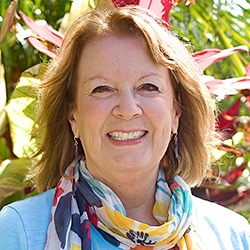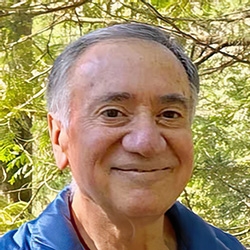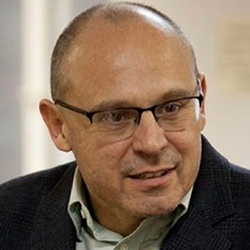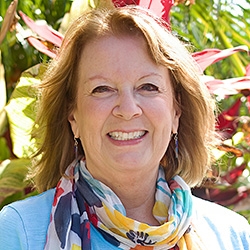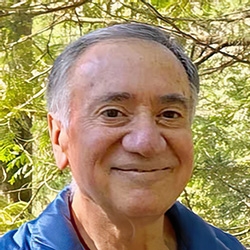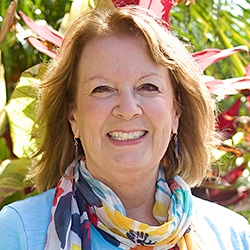

Search Results: process
-
Ask the Trainer: Get guidance on working with enemy images and exercises that bring relief.
-
NVC is a process. It’s the willingness and effort to empathize with both sides of a conflict, encouraging each side to empathize with the other, and then seeing what solution can arise, working together to meet the needs of both sides. Empathy is the experience of being not separate as well as being an individual. It's seeing we're all part of the one ever-flowing consciousness of being, all unique expressions of this unity.
-
In this inspiring audio, Mary takes to a more profound level the traditional NVC self-empathy process of identifying judgments, feelings and needs, by adding a "wrapping" component.
-
There are four components to the Nonviolent Communication (NVC) model, as developed by Marshall Rosenberg, PhD. The 4-Part NVC Process can guide you to express how you are, or they can be used to empathically receive how another is.
-
Building your body and mind awareness can help you better regulate/calm your emotions. Regular self-empathy will help you better regulate your emotions as well as increase your body and mind awareness. If you are not aware of amygdala activation (fight/flight/freeze response), you will react instead of responding with choice. Use this eight-step process to develop your self-empathy/regulation skills.
-
Exploring how NVC can support healing and connection in places deeply affected by violence.
-
CNVC Certified Trainer Miki Kashtan explains how NVC's OFNR process is a tool to train our consciousness, rather than the "correct" way to speak.
-
Trainer Tip: Notice where you're judging or blaming people for not meeting your needs. Strive instead to notice and name the related feelings and needs longing to be met. Ask a question to check with the other person about what they want and need. This can open up the conversation towards mutually beneficial solutions.
-
Let's take a look at life-serving possibilities for changing a habit: contemplation of the benefits and costs of the habit, changing the conditions in your life to support the new habit, and taking support away from the old habit. Read on for more.
-
Grow your compassionate presence with this 3-process exercise. The processes include: Connecting to and feeling the Life Impulse meditation, Creating your own inner space of compassionate presence exercise, and the Compassionately Embracing visualization. These processes will guide you toward deeper self connection and compassionate presence.
-
Duke Duchscherer explores responding to people who are committed to a punitive process rather than a restorative process. He suggests looking for what needs are met by the punitive process. Could those needs be met in a restorative process?
-
- Learn how every decision we make perpetuates the status quo or brings us closer to the vision of a world that works for all
- Find out about our big brain capacity to integrate needs, impacts, and resources to make decisions that work for everyone
- Understand why power differences interfere with collaborative decisions and what can be done about it
- Discover tools that support collaboration in larger groups and organizations— even across power differences!
-
-
Join Eric Bowers in transforming past relationship pain, coming alive in community and creating thriving relationships. This 12 session Telecourse recording brings together Eric's passions for Nonviolent Communication, Attachment Theory and Interpersonal Neurobiology.
-
Trainer Tip: The Nonviolent Communication process strengthens our ability to remain human, even under trying conditions. It provides tools to promote peaceful living on a daily basis. Be aware today of the times that your behaviors or attitudes promote distrust and self-protection, rather than compassion and humanity.
-
Robert's passion was in the spirituality of the Nonviolent Communication (NVC) process. He saw NVC both as a process that helps people connect more authentically with themselves and others, and as a spiritual practice and way of living. The worldwide NVC community mourned when Robert died in 2021. He left behind a legacy of work that emerged from a lifetime of inquiry into the intersection between spirituality and human communication.
-
Ask the Trainer: Can NVC transform group conflict? Trainer shares stories and answers the question.
-
Trainer Tip: People struggle to come to agreement when they don’t feel heard. So as a mediator, facilitate the process by asking all parties to reflect the essence of what's important to other parties. This is critical. Once everyone is confident that their needs have been heard, you'll notice the energy in the room relaxing. Then you can brainstorm strategies that will value everyone’s needs, and are focused on what they want to happen.
-
Experience John Kinyon's application of NVC Founder Marshall Rosenberg's 4-part model of reconciliation and healing, a model he developed over the course of decades of work with people around the world who have experienced the deep pain of violence.
-
Old emotional hurts and pains can easily erupt when you’re in the throes of conflict – even if you’re the mediator. Wouldn’t it be lovely if you could avoid all of that, and instead create more peace and happiness for yourself, your family, your co-workers and your community?

Quick Links
Subscription Preferences
Stay In Touch!
Looking for ways to keep up with NVC Academy news, get special offers, free resources, or words of inspiration? Here are five ways to stay engaged:



